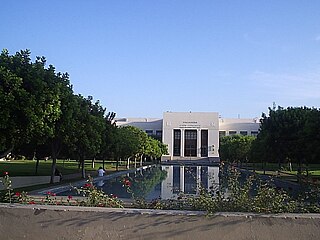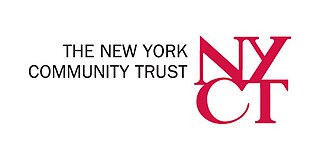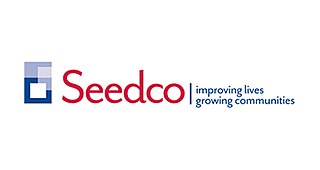The New York City Employment and Training Coalition is an organization of workforce development and training providers based in New York City. Members include community-based organizations, community colleges, unions and government agencies. Seeking to serve as the primary connection point for a fragmented workforce development system, it advocates for effective workforce development policies, adequate program funding and effective use of federal stimulus dollars. NYCETC also works to sustain an environment that supports a high quality workforce development system to meet the changing needs of New Yorkers. NYCETC connects its members to policy makers, employers, best practices, and more through its forums, conferences and other outreach efforts. NYCETC is also a key resource for news, analysis, and information through its flagship publication, NYC Workforce Weekly, read by nearly 4,000 people a week.
Workforce development, an American approach to economic development, attempts to enhance a region's economic stability and prosperity by focusing on people rather than businesses. It essentially develops a human-resources strategy. Work-force development has evolved from a problem-focused approach, addressing issues such as low-skilled workers or the need for more employees in a particular industry, to a holistic approach considering participants' many barriers and the overall needs of the region.

The City of New York, usually called either New York City (NYC) or simply New York (NY), is the most populous city in the United States. With an estimated 2017 population of 8,622,698 distributed over a land area of about 302.6 square miles (784 km2), New York is also the most densely populated major city in the United States. Located at the southern tip of the state of New York, the city is the center of the New York metropolitan area, the largest metropolitan area in the world by urban landmass and one of the world's most populous megacities, with an estimated 20,320,876 people in its 2017 Metropolitan Statistical Area and 23,876,155 residents in its Combined Statistical Area. A global power city, New York City has been described as the cultural, financial, and media capital of the world, and exerts a significant impact upon commerce, entertainment, research, technology, education, politics, tourism, art, fashion, and sports. The city's fast pace has inspired the term New York minute. Home to the headquarters of the United Nations, New York is an important center for international diplomacy.

A community college is a type of educational institution. The term can have different meanings in different countries: many community colleges have an “open enrollment” for students who have graduated from high school. The term usually refers to a higher educational institution that provides workforce education and college transfer academic programs. Some institutions maintain athletic teams and dormitories similar to their university counterparts.
The Workforce Investment Act of 1998 was a United States federal law that was repealed and replaced by the 2014 Workforce Innovation and Opportunity Act.

The Employment and Training Administration (ETA) is part of the U.S. Department of Labor. Its mission is to provide training, employment, labor market information, and income maintenance services. ETA administers federal government job training and worker dislocation programs, federal grants to states for public employment service programs, and unemployment insurance benefits. These services are primarily provided through state and local workforce development systems.
The Committee on Education and Labor is a standing committee of the United States House of Representatives.

Capacity building is the process by which individuals and organizations obtain, improve, and retain the skills, knowledge, tools, equipment and other resources needed to do their jobs competently or to a greater capacity. Capacity building and capacity development are often used interchangeably.
Human resource policies are continuing guidelines on the approach of which an organization intends to adopt in managing its people. They represent specific guidelines to HR managers on various matters concerning employment and state the intent of the organization on different aspects of Human Resource management such as recruitment, promotion, compensation, training, selections etc. They therefore serve as a reference point when human resources management practices are being developed or when decisions are being made about an organization's workforce.

The New York Community Trust is the community foundation for New York City, with divisions in Westchester and Long Island. The New York Community Trust connects past, present, and future generous New Yorkers with vital nonprofits working to make a healthy, equitable, and thriving community for all. It is one of the oldest and largest community foundations in the United States and one of the largest funders of New York City’s nonprofits.

The Technical Education and Skills Development Authority (TESDA) serves as the Philippines' Technical Vocational Education and Training (TVET) authority. As a government agency, TESDA is tasked to both manage and supervise the Philippines' Technical Education and Skills Development (TESD). Its goals are to develop the Filipino workforce with "world-class competence and positive work values" and to provide quality technical-educational and skills development through its direction, policies, and programs.

Sustainable South Bronx (SSBx) is a non-profit workforce development and environmental justice solutions organization in New York City's South Bronx neighborhood, founded by Majora Carter in 2001. Today, it is a division of the Brooklyn-based workforce development organization,The HOPE Program.
Wider Opportunities for Women (WOW) is a national nonprofit organization in the United States established in 1962 by Jane Fleming and Mary Janney in Washington, D.C.

Seedco, the Structured Employment Economic Development Corporation, is a national, nonprofit, community development organization that works with local organizations in low-income communities to promote economic advancement and help people move out of poverty. Seedco partners with local community-based organizations (CBOs) to provide assistance to job seekers, workers, and small business owners in disadvantaged communities. Seedco's headquarters are located in New York City and the organization does work in Alabama, Arkansas, Colorado, Florida, Georgia, Louisiana, Maryland, Massachusetts, Mississippi, New Jersey, New York, Tennessee, Texas, and Washington, D.C. Seedco formerly invested in low-income communities in many areas of the country to create jobs and support small business owners through its subsidiary, Seedco Financial. Seedco Financial was spun off into its own company in 2012 now under the name TruFund Financial Services.

Workforce Innovation in Regional Economic Development (WIRED) was a project of the United States Department of Labor. It provided a new approach to workforce and economic development. Through the WIRED model, regions integrated economic and workforce development activities to demonstrate that talent development can drive economic transformation in regional economies across the United States.

The Centre of Full Employment and Equity or CofFEE is an official research centre of the University of Newcastle, New South Wales, Australia, and has operated since 1998. CofFEE's membership is drawn from the disciplines of economics, politics, sociology and geography.

The Transportation Equity Network (TEN) is a project of the Gamaliel Foundation and a grassroots organization with more than 350 community organizations in 41 states in the United States. TEN's stated goal is "to create an equity-based transportation system by connecting local transportation campaigns with D.C.-based advocacy."

Project HOME is a nationally recognized 501(c)(3) non-profit organization that provides housing, opportunities for employment, medical care and education to homeless and low-income persons in Philadelphia, Pennsylvania.

Michael S. Bernick is an American lawyer. He served as Director of California's labor department, the Employment Development Department (EDD) from 1999 to 2004. He is a practitioner and theorist of job training and employment strategies. In a series of articles and books written during the 1980s and 1990s, drawing on his experience in community job training, he argues against the then-expanding social welfare system. He sets out alternative strategies of inner city entrepreneurship and market-based training and job ladders. In the 2000s, his practice and writing turned to worker retraining and reemployment strategies, including a series of local job training projects targeting displaced workers in California. Today, he is also active in developing local training projects for workers with autism and other neurodiverse conditions.

The Workforce Innovation and Opportunity Act (WIOA) is a United States public law that replaced the previous Workforce Investment Act of 1998 (WIA) as the primary federal workforce development legislation to bring about increased coordination among federal workforce development and related programs.
Marc Bendick, Jr. is a United States economist who conducts and applies social science research concerning public policy issues of employment, discrimination, and poverty.
Opportunities Industrialization Center is a nonprofit adult education and job training organization headquartered in Philadelphia, Pennsylvania, with offices located in New Haven, CT, Washington, D.C. and Burma Camp, Accra, Ghana.












